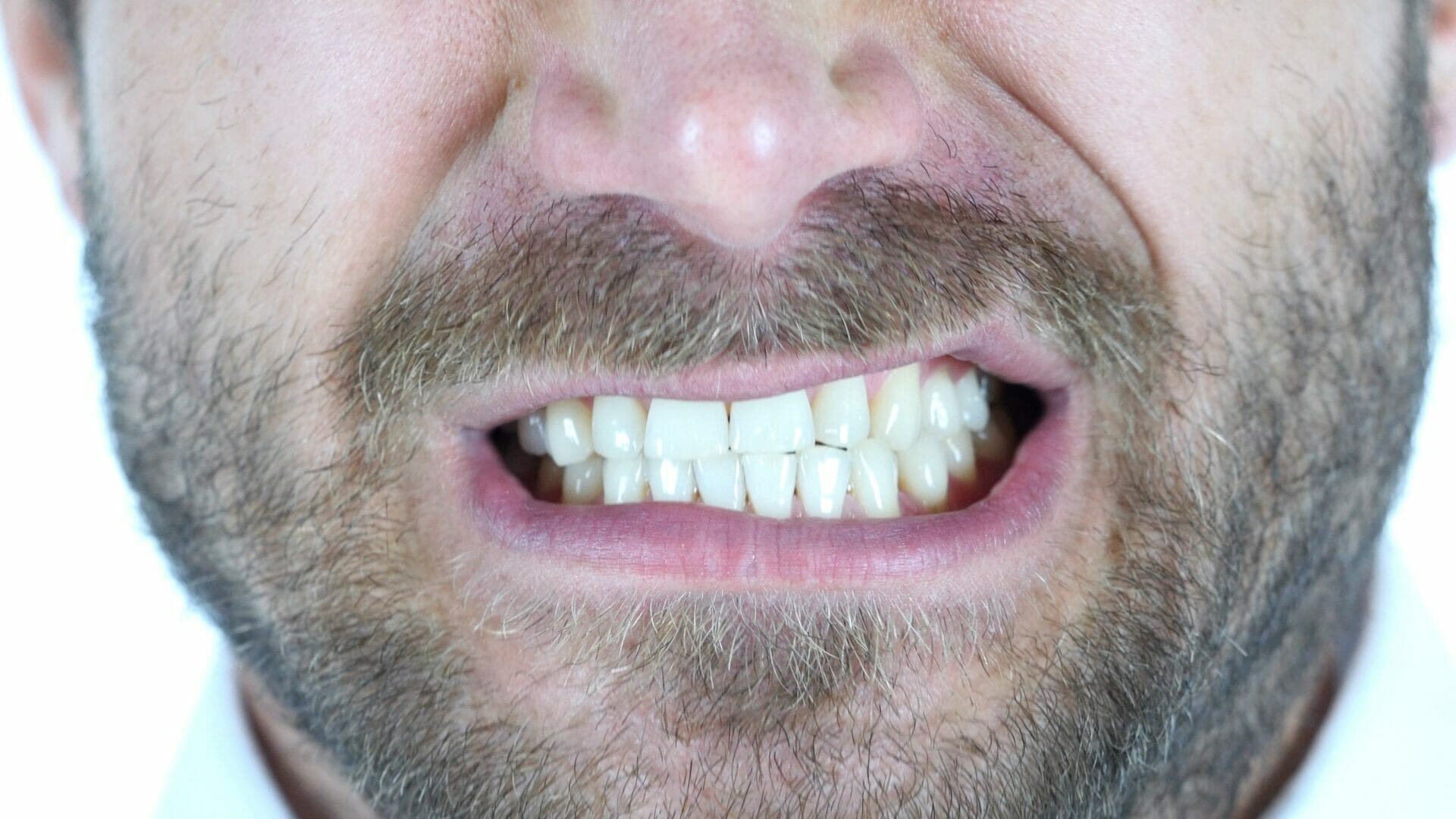
Hi! My name is Dr. Kyle Hornby and I'm an Dentist in Kitchener, Ontario. Each week, I sit down at my laptop to come up with interesting oral health content to help you raise the bar on your own oral health. Today, I'd like to talk about the top 3 reasons why you may be grinding your teeth and what you can do to minimize harmful outcomes.
To start this article, let me explain what tooth grinding is.
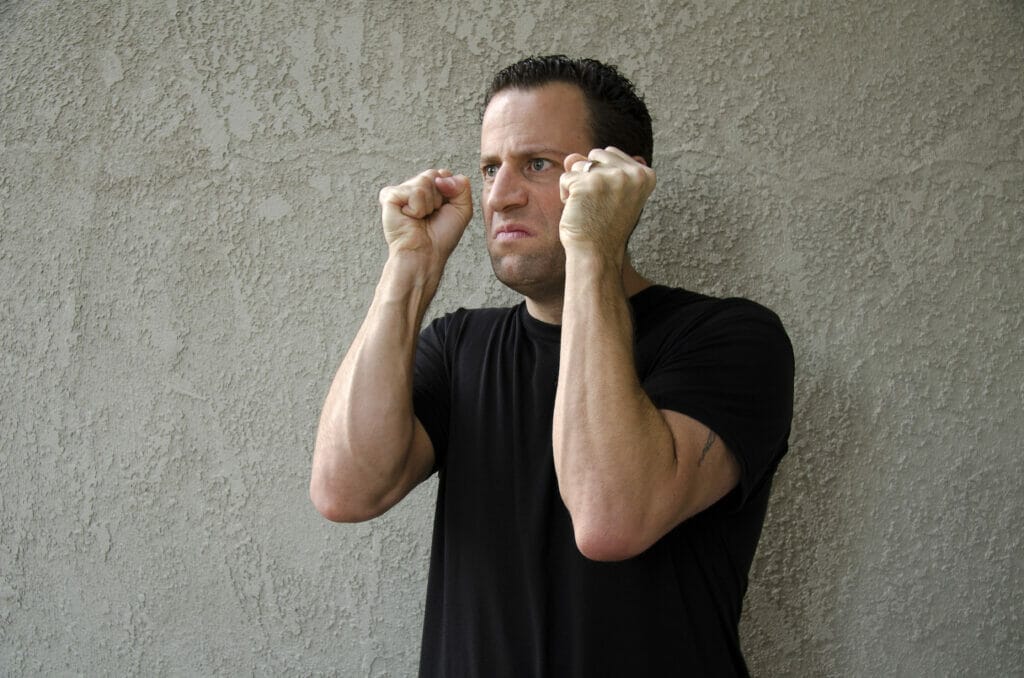
Tooth grinding occurs when you bite together and slide your teeth against each other for any purpose other than eating. Tooth clenching is different and involves biting together under heavy pressure but without the sliding motion.
Dentists refer to these activities as bruxing (bruxism is the diagnostic term) or parafunction.
When we eat over our lifetime, our tooth enamel wears down slowly and our jaw accumulates wear and tear. Grinding and clenching both accelerate these degenerative changes and can be very harmful.
So, if bruxing serves no real purpose, then why do some of us do it?
There is no complete understanding as to why people grind. While there are many thoughts on the subject, a few common reasons for bruxism exist. Here they are...
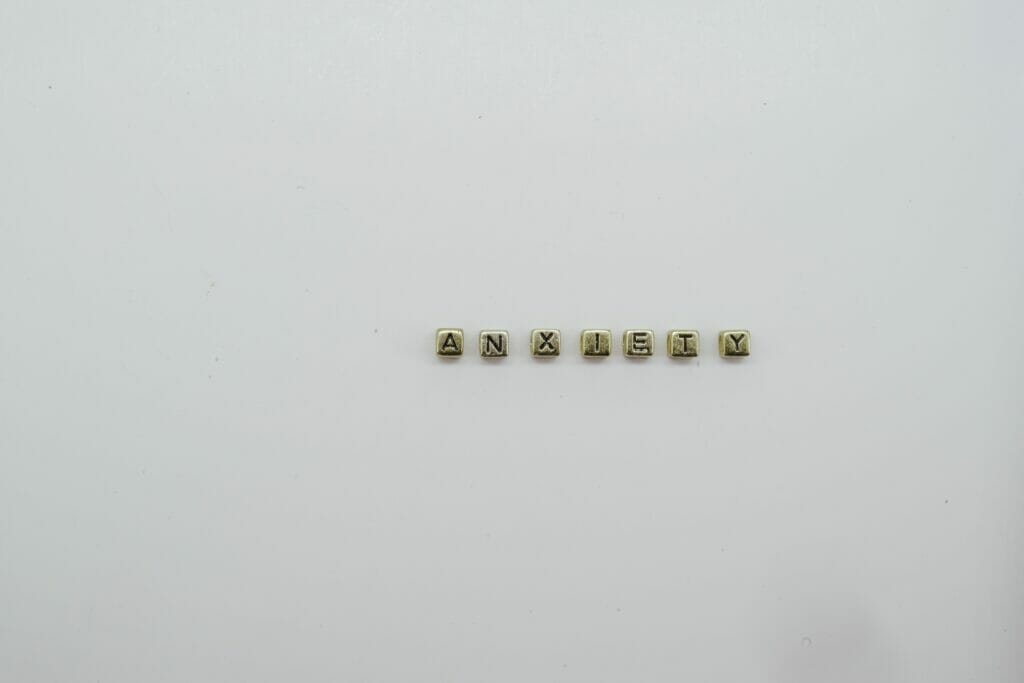
There is a definite correlation between stress and anxiety and bruxing. Patients notice increased facial pain and grinding behaviour during stressful periods. We definitely notice that people with high stress (think police officers) or deadline-driven (think newspaper and magazine editors) jobs grind at a higher frequency.
What about anxiety?
The number of people on anti-anxiety (or anxiolytic) medications seems to increase yearly. We notice many of these patients report grinding and/or clenching their teeth at a higher rate than expected in the general population.
But, is there any research to show a link between bruxism and stress/anxiety?
Many studies have shown a correlation between psychological factors and tooth grinding.
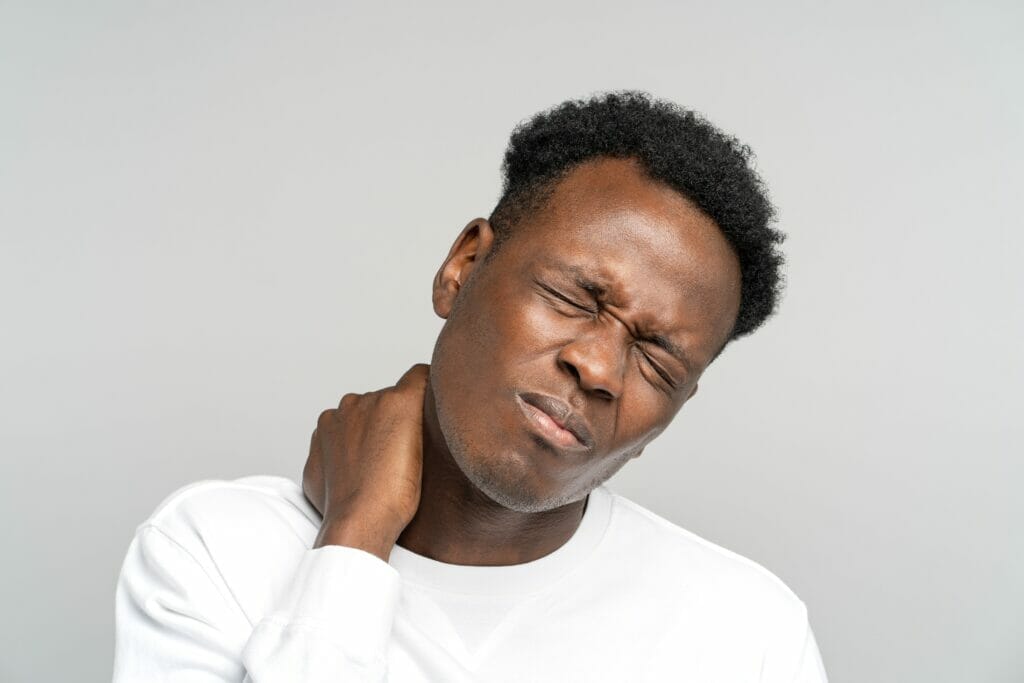
Chronic pain is demoralizing. It can really affect us in a number of ways and it tends to be most noticeable when we lay down to sleep. Pain often interferes with steady sleep and proper transition through sleep phases. It can make us restless during sleep.
Chronic pain, which is a form of physical stress, can also cause us to grind our teeth.
We see heavy bruxism and related damage in patients experiencing chronic back and joint pain. We see it in patients suffering through chronic pain disorders like fibromyalgia. The affect of chronic pain on bruxism
The affect of chronic pain on bruxing frequency (and possibly severity) is likely twofold. First, chronic pain causes distress and we've already seen how stress can trigger bruxism. Chronic pain also disturbs sleep, resulting in restlessness and possibly bruxing.
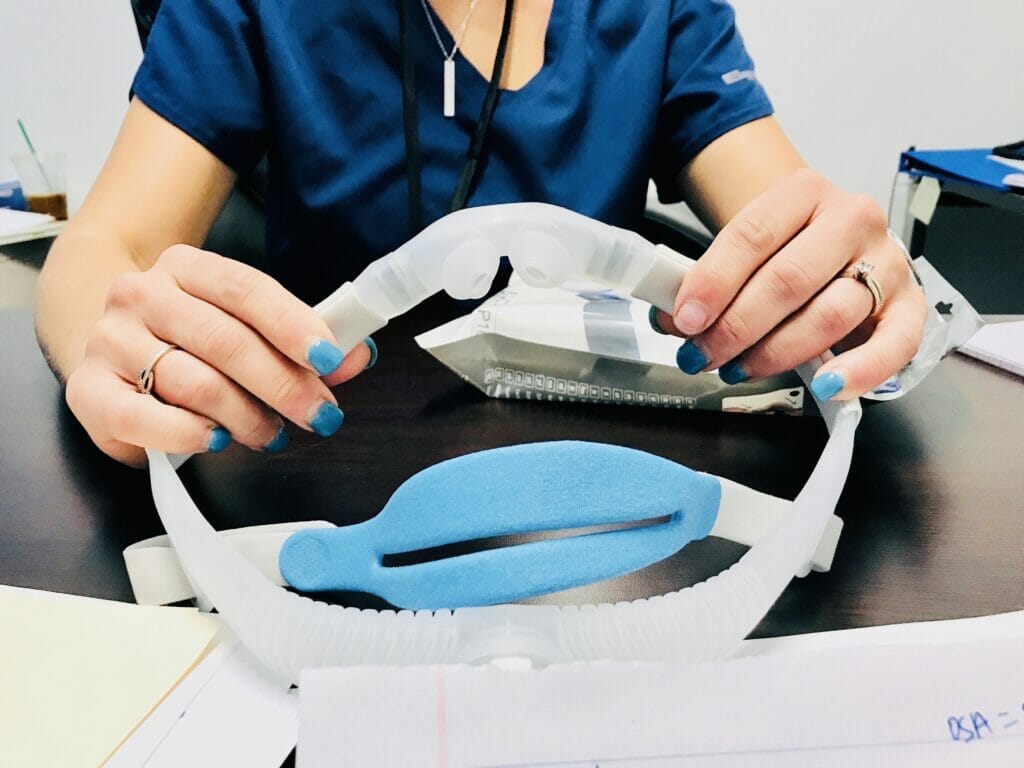
Sleep apnea comes in 2 forms: obstructive and central. In Obstructive Sleep Apnea (OSA), your airway physically closes during sleep. When this happens your body experiences a reflexive micro-awakening, whereby you emerge from sleep but aren't conscious. In Central Sleep Apnea (CSA), your brain stops sending the signals necessary for you to keep breathing. Again, loss of oxygen triggers an awakening.
There has been a great deal of research linking OSA to bruxism. Many experts suggest that tooth grinding is the outcome of a reflex designed to trigger jaw movement and open your airway. There is also evidence that bruxism frequency decreases with proper management of OSA.
This information suggests that, if you suffer from OSA, you should have your Dentist check for signs of damage related to grinding. More commonly, bruxism is diagnosed first and then an astute Dentist will ask you about your sleep quality. This will help in screening you for possible OSA.
Ideally, we try to eliminate grinding and clenching by removing or treating the triggers. That may be possible to some extent by treating sleep apnea but nobody chooses to be in chronic pain or under heavy stress.
Nonetheless, we have some tips to help minimize the effect of stress, pain and sleep apnea in triggering bruxism...
By Dr. Kyle Hornby, Kitchener Dentist
Our Dentist Office is located in Downtown Kitchener. We are a short drive away for families in Waterloo, Breslau & St. Jacobs. Our central location means we truly offer family dentistry near you!
This article is not intended to be a substitute for professional advice, diagnosis, or treatment. Accordingly, always seek the advice of your Dentist or other healthcare providers regarding a dental condition or treatment.
Services
Routine Dentistry & Tooth Repair
Oral Surgery & Tooth Removal
Prosthetic Dentistry & Tooth Replacement
Protective/Preventive Services
Teeth Whitening
Schedule an Appointment Now
